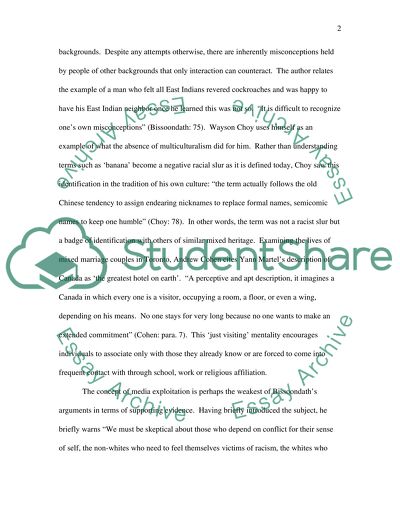Cite this document
(“Bissoondaths Attitudes on Multiculturalism Essay”, n.d.)
Bissoondaths Attitudes on Multiculturalism Essay. Retrieved from https://studentshare.org/literature/1541570-bissoondaths-attitudes-on-multiculturalism
Bissoondaths Attitudes on Multiculturalism Essay. Retrieved from https://studentshare.org/literature/1541570-bissoondaths-attitudes-on-multiculturalism
(Bissoondaths Attitudes on Multiculturalism Essay)
Bissoondaths Attitudes on Multiculturalism Essay. https://studentshare.org/literature/1541570-bissoondaths-attitudes-on-multiculturalism.
Bissoondaths Attitudes on Multiculturalism Essay. https://studentshare.org/literature/1541570-bissoondaths-attitudes-on-multiculturalism.
“Bissoondaths Attitudes on Multiculturalism Essay”, n.d. https://studentshare.org/literature/1541570-bissoondaths-attitudes-on-multiculturalism.


